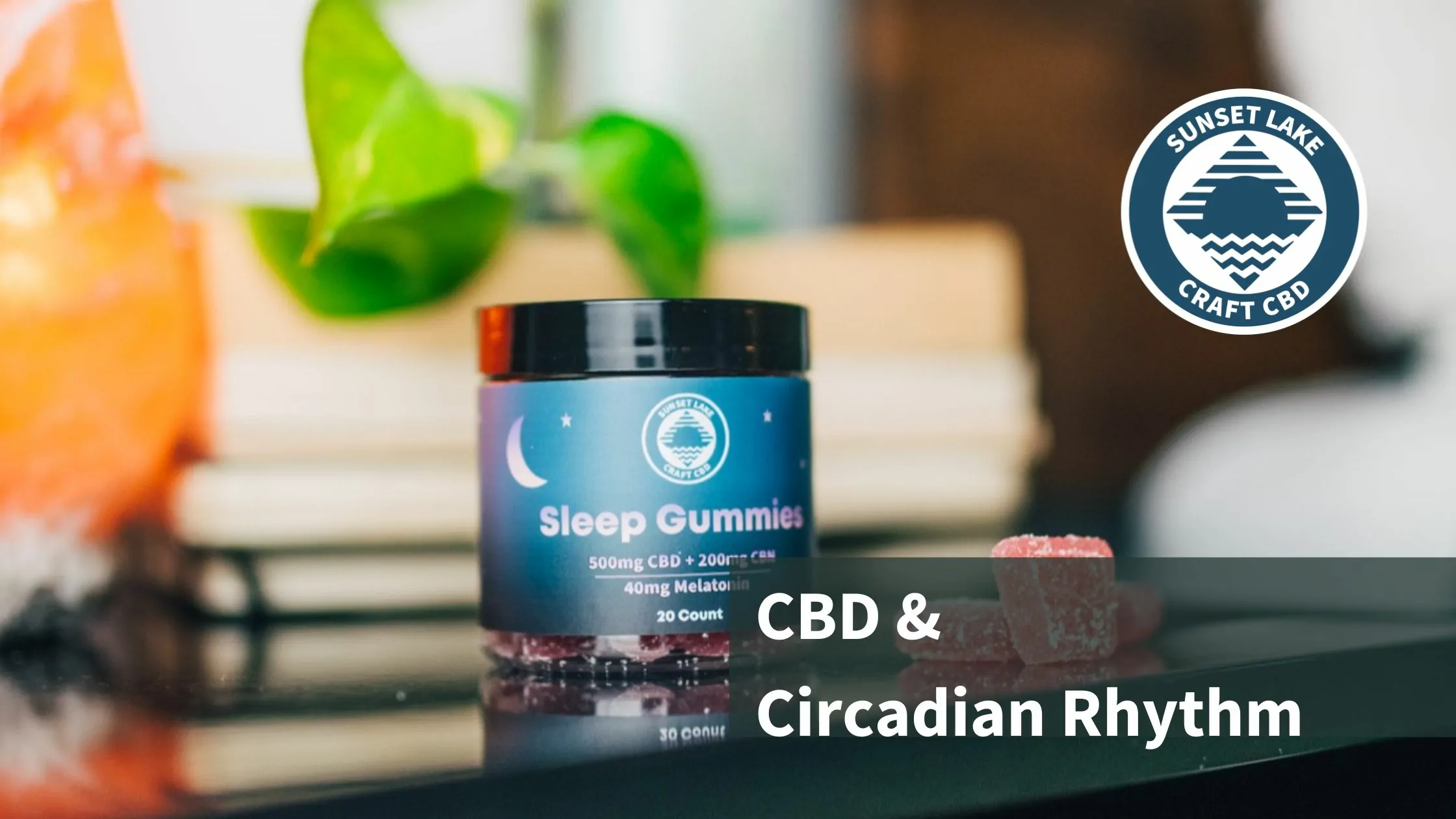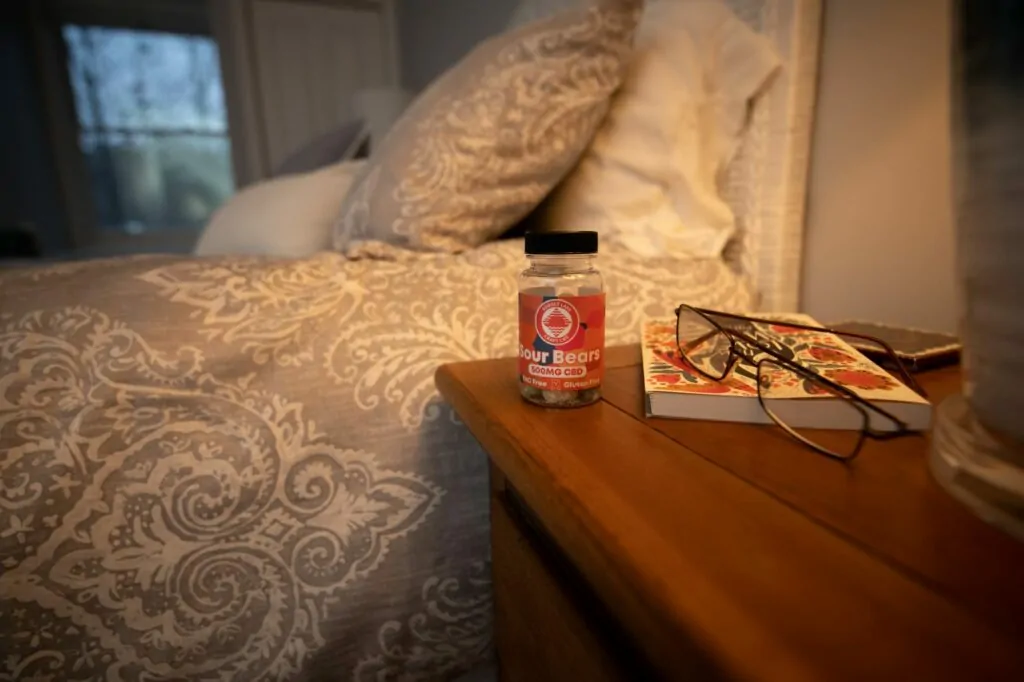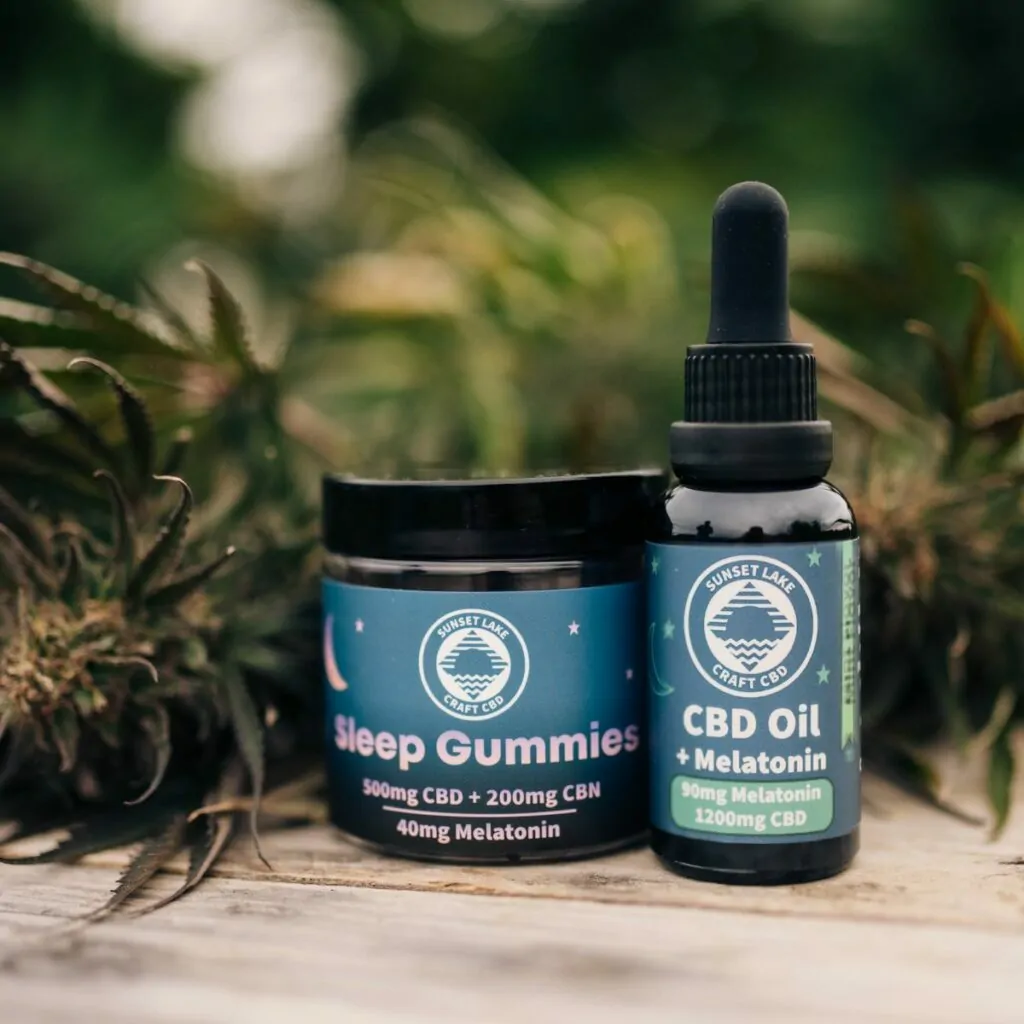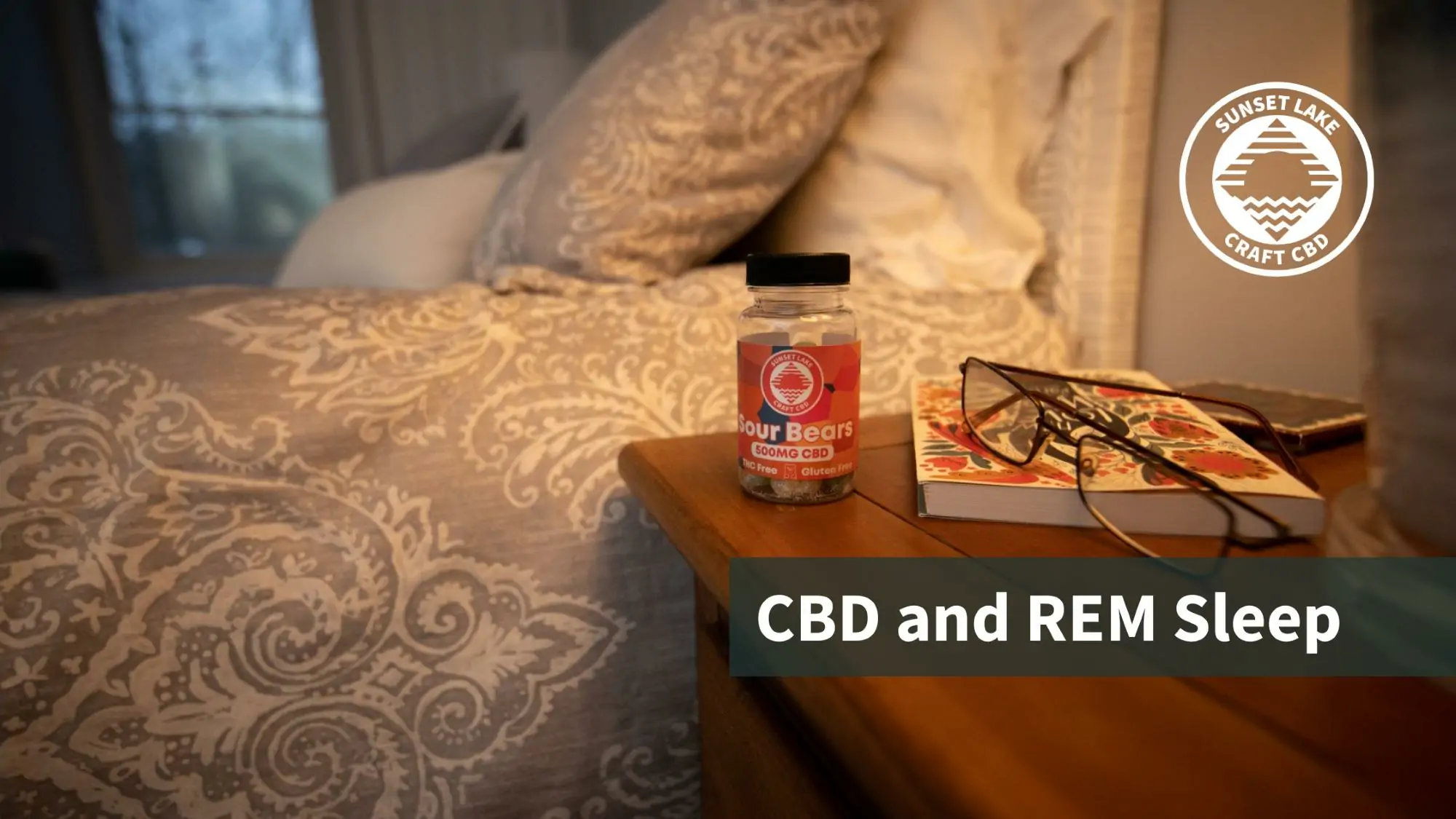
CBD is becoming quite a popular supplement among the young and the restless (and everyone in between). Millions of Americans have reported trying CBD and many have said that it helps them with their sleep. But why is that? Are CBD and circadian rhythm linked?
In this post, we’re going to talk about:
- What CBD is
- What your circadian rhythm is
- How CBD might help your circadian rhythm and ultimately, your quality of sleep
Disclaimer: This piece is for informational purposes only. The efficacy of CBD has not been confirmed by FDA-approved research. CBD is not intended to diagnose, treat, cure, or prevent any disease. There is no guarantee that CBD will help you get to or stay asleep.
What is CBD?
CBD is short for cannabidiol and is one of the 100+ naturally occurring compounds called cannabinoids produced by mature hemp and cannabis plants. Unlike its well-studied counterpart, THC (tetrahydrocannabinol), CBD is not psychoactive and doesn’t induce intoxicating effects when you consume it.
Learn more about how we extract CBD from hemp plants.
CBD can be consumed in various forms, including oils, tinctures, edibles, and topicals. Each method of consumption offers different benefits and absorption rates. For instance, CBD oils and tinctures are typically taken sublingually (under the tongue) and are known for their relatively quick onset of effects, while edibles like gummies may take longer to produce effects but are often preferred for their convenience and taste.
CBD and Sleep
A recent survey published in the Journal of Cannabis Research suggests that many CBD users are self-medicating with CBD to help manage their sleep issues. Of the 430 respondents, 42.5% said that they had or do use CBD to “improve sleep quality” or to treat self-perceived insomnia.
There are a number of reasons that CBD may help a person fall asleep, whether that’s making you drowsy or addressing the root causes of restlessness like stress and anxiety. Researchers aren’t certain yet, but we do know that 40% of respondents from that same Cannabis Research survey said that CBD improved their sleep.
Related: CBN: The “Sleep Cannabinoid”
CBD may also interact with various receptors in the body that play a role in sleep regulation. For example, some studies suggest that CBD interacts with serotonin receptors, which are involved in mood regulation and anxiety. By potentially alleviating anxiety, CBD might help individuals achieve a more relaxed state conducive to sleep.
Furthermore, CBD may influence the body’s endocannabinoid system (ECS), which is involved in regulating various physiological processes, including sleep. The ECS consists of cannabinoid receptors (CB1 and CB2), endocannabinoids (naturally occurring cannabinoids in the body), and enzymes that break down these endocannabinoids. CBD’s interaction with the ECS might help promote homeostasis, or balance, which is crucial for maintaining healthy sleep patterns.
What is the Circadian Rhythm?
The circadian rhythm is an internal, roughly 24-hour clock that regulates your body’s physiological, metabolic, and mental processes. It’s kept ticking by a small region in the brain’s hypothalamus and is sometimes called “the master clock.” Essentially, the circadian rhythm is why you feel drowsy when the sun sets and why you feel more awake in sunlight. Light-sensitive cells in your eyes send cues to your hypothalamus so that you can sync up with the day-night cycle.
Even without natural light, your circadian rhythm keeps you on track by making you feel drowsy or awake when you normally would. This internal clock can be influenced by various factors, including light exposure, lifestyle habits, and genetic predispositions.
Ever wonder why you can’t sleep in on the weekends? That’s your circadian rhythm at work.
Functions of the Circadian Rhythm
Aside from rousing you from sleep and making you drowsy, the circadian rhythm is important for many bodily functions including:
Hormone Production
Many endogenous hormones like cortisol, melatonin, and human growth hormone follow your circadian clock. The circadian rhythm signals the release of human growth hormone as we sleep, which is vital for growth, cell repair, and overall health.
Related: Understanding the Link Between CBD and Adenosine
Temperature Regulation
Our body temperature fluctuates daily, contributing to our wake-sleep cycle. Typically, body temperature drops at night to promote sleep and rises in the morning to help us wake up.
Metabolism
Just as we feel alert or drowsy around the same time every day, our circadian rhythm also affects metabolism and digestion, meaning you’ll likely feel hungry around the same time every day. This regulation helps ensure that our bodies process food efficiently and maintain energy balance.
Cognitive Function
The circadian rhythm also plays a role in cognitive functions such as alertness, memory, and concentration. Disruptions to this rhythm can lead to cognitive impairments and decreased productivity.

Effects of a Deregulated Circadian Rhythm
Keeping time and maintaining a well-running circadian rhythm is crucial for staying healthy and happy. Studies have linked circadian rhythm deregulation to disorders like:
Sleep Disorders
Circadian rhythm disorders like insomnia, REM behavior disorder, and shift work disorder can lead to excessive fatigue during the day and sleep deprivation. This can result in a range of negative health outcomes, including impaired cognitive function, mood disturbances, and weakened immune response.
Mood Disorders
Irregular circadian rhythms have been linked to mood disorders like depression and bipolar disorder. Maintaining a regular sleep-wake cycle can be essential for managing these conditions and improving overall mental health.
Metabolic Disorders
Emerging research suggests that circadian rhythm deregulation may play a role in obesity, diabetes, and cardiovascular disease. A misaligned circadian rhythm can affect the body’s ability to regulate blood sugar levels, lipid metabolism, and energy expenditure, leading to an increased risk of metabolic disorders.
Immune System Function
The circadian rhythm also influences the immune system. Disruptions to the circadian rhythm can impair immune function, making the body more susceptible to infections and diseases.
CBD and the Circadian Rhythm
While CBD research is still in its infancy, researchers are actively looking into cannabidiol’s relationship with sleep. While we can’t say for sure how CBD affects our circadian rhythm, we can speculate based on some existing studies.
Sleep-Wake Cycle
Several studies suggest that CBD may have a positive effect on sleep quality. It’s plausible that CBD might directly or indirectly influence our circadian rhythm. For example, by improving sleep quality, CBD might help reinforce a consistent sleep-wake cycle, which is essential for a well-regulated circadian rhythm.
Stress and Anxiety
Some research suggests that CBD might be able to reduce our stress levels and quiet those incessant before-bed thoughts, leading to better sleep. Chronic stress has been linked to an imbalance in our endogenous hormones and neurotransmitters, both of which are important for maintaining our circadian rhythm. By potentially reducing stress and anxiety, CBD might help support a more balanced circadian rhythm.
Light Sensitivity
Some research indicates that CBD might affect retinal function and our eye’s sensitivity to light. It’s possible that CBD’s influence on our sensitivity to light may impact our circadian rhythm. But, that research is still inconclusive. Understanding how light exposure affects our internal clock could help us better manage our circadian rhythms.
Neuroprotective Properties
CBD’s potential neuroprotective properties might also play a role in circadian rhythm regulation. By supporting brain health, CBD might help maintain the integrity of the neural pathways involved in circadian rhythm regulation.
Using CBD for Your Circadian Rhythm
While cannabidiol shows potential in supporting better sleep and a healthy circadian rhythm, CBD isn’t a cure-all for sleep disorders.
Before you jump into the world of CBD, try adjusting your sleep hygiene, also known as your before-bed routine. Avoid screens, and stimulants, and adhere to a strict sleep schedule. If that isn’t enough, then look into CBD and ask your doctor if it will interact with any of your prescriptions.
Here are some tips for optimizing your sleep hygiene:
- Maintain a Regular Sleep Schedule: Go to bed and wake up at the same time every day, even on weekends.
- Create a Relaxing Bedtime Routine: Engage in calming activities before bed, such as reading, meditating, or taking a warm bath.
- Limit Exposure to Light: Dim the lights in the evening and avoid blue light from screens at least an hour before bedtime.
- Watch Your Diet: Avoid heavy meals, caffeine, and alcohol close to bedtime.
If you ultimately decide to try CBD, source it from sustainable and reliable sources. For more information about how to do so, check out our handy CBD buying guide and become a better-informed shopper.
When incorporating CBD into your routine, start with a low dose and gradually increase it until you find the right amount that works for you. It’s also important to monitor your body’s response and consult with a healthcare professional if you have any concerns.
FAQs
- What is CBD?
CBD, short for cannabidiol, is a naturally occurring compound found in hemp and cannabis plants. It is non-psychoactive and does not induce intoxicating effects.
- How does CBD affect sleep?
CBD may help improve sleep by addressing the root causes of restlessness, such as stress and anxiety, though research is still ongoing. It may also interact with receptors in the body that play a role in sleep regulation.
- What is the circadian rhythm?
The circadian rhythm is a roughly 24-hour internal clock that regulates physiological, metabolic, and mental processes, influencing sleep-wake cycles and other bodily functions.
- Can CBD influence the circadian rhythm?
While research is still in its early stages, some studies suggest that CBD may have a positive effect on sleep quality and could potentially influence the circadian rhythm. CBD’s potential effects on stress, anxiety, and light sensitivity may also play a role.
- How should I use CBD to support my circadian rhythm?
Start by improving your sleep hygiene, then consider using CBD. Consult with a doctor to ensure it doesn’t interact with any of your prescriptions and source CBD from reliable providers. Begin with a low dose and adjust as needed.






